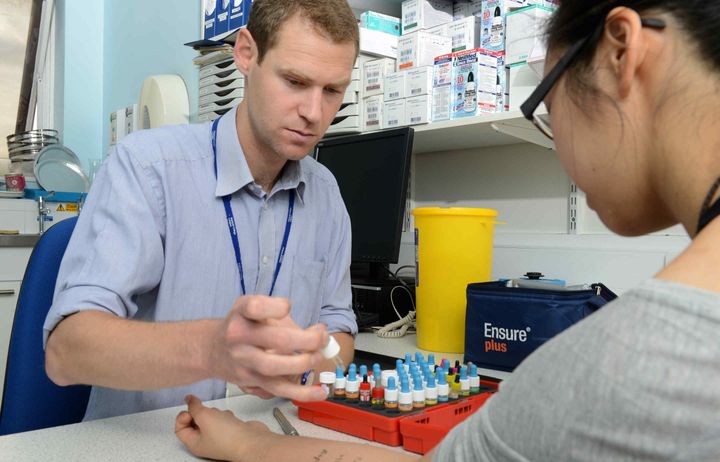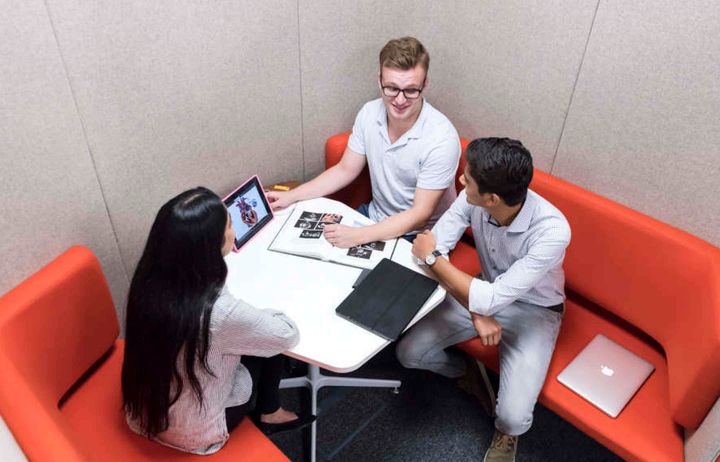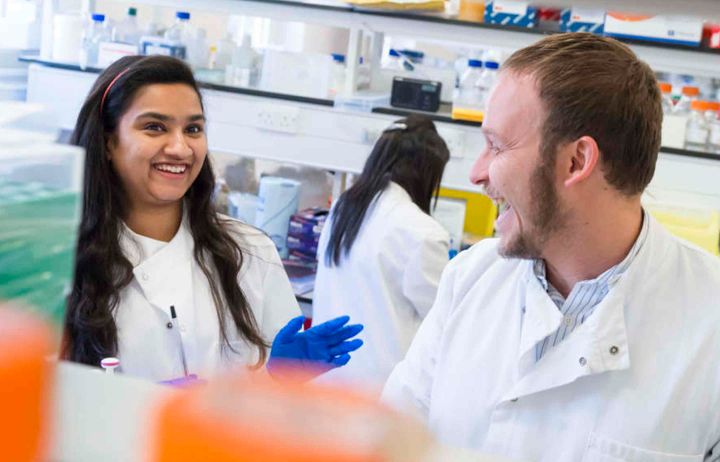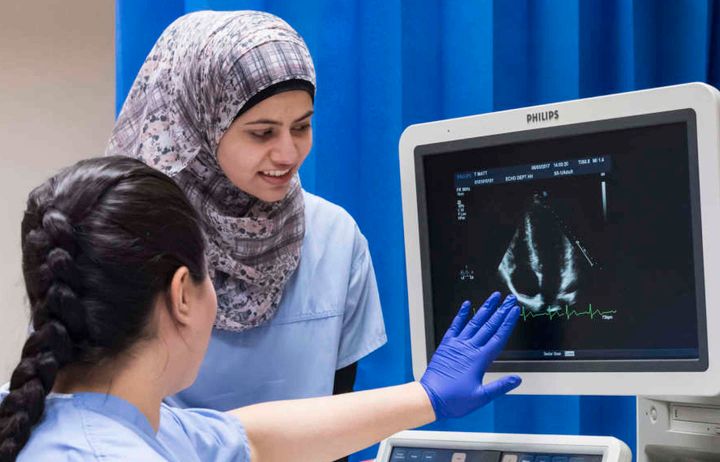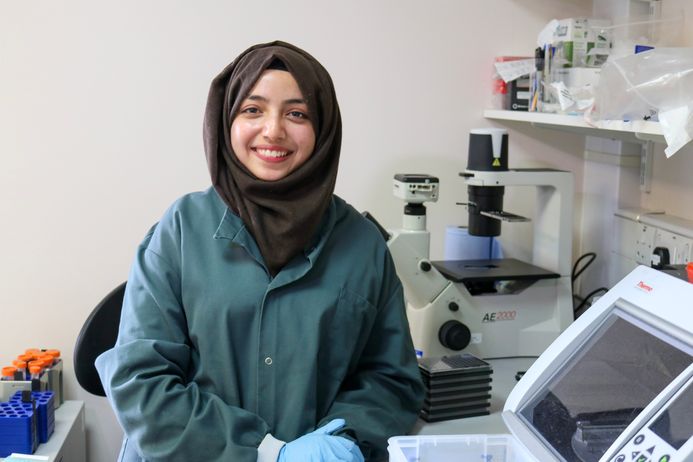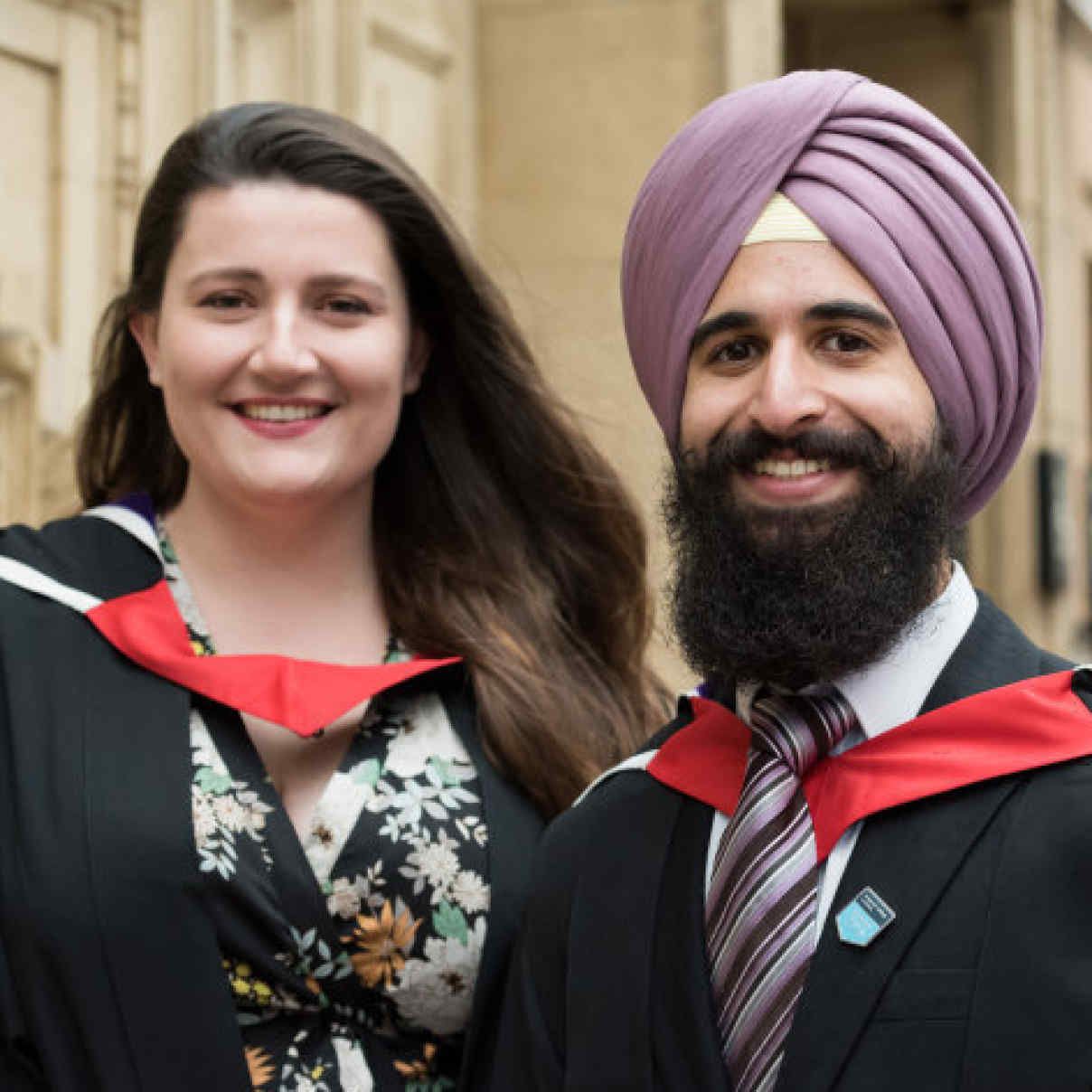Meet our masters students
Angela Pinot de Moira - PGCert Allergy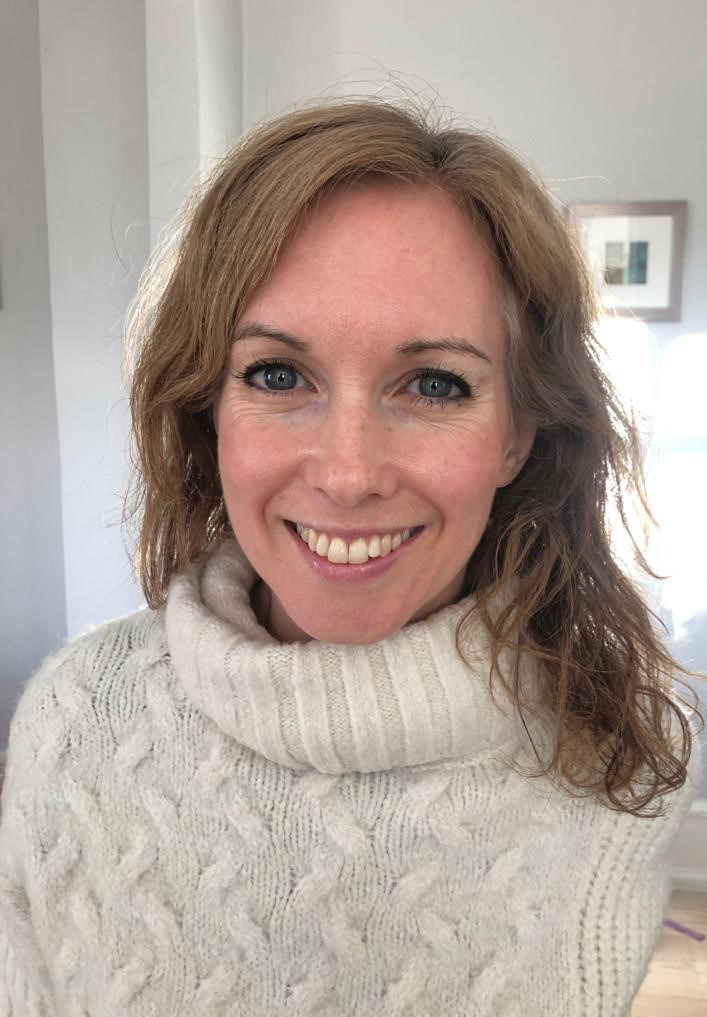
Why did you choose Allergy at Imperial?
I decided to study for a PGCert in Allergy to gain a better understanding of the clinical manifestations of asthma and allergy and how these relate to the underlying immune mechanisms. I specifically chose the Allergy programme at Imperial because of its clinical perspective and the fact that it is taught by world-leading clinical researchers in the field of allergy. Imperial is also one of the top institutes for respiratory health and allergy research in world. Therefore the course promised to provide both world-class teaching and excellent opportunities for networking and forging new collaborations.
What was a highlight of the course?
One of the highlights of the course was the diversity of the students on the course, not only in terms of the range of professions represented, but also the nationalities represented. This meant that each student brought with them their own unique perspective, creating a unique learning experience.
How did the structure of the course suit your needs?
The structure of the course was great for me. I have a young family and a full-time research job, so its part-time structure, with just three weeks of in-person teaching spread across the year, meant that I could combine the course with my other work-life commitments.
What are you doing now?
I am an epidemiologist currently based at the University of Copenhagen in Denmark where my research focuses on how early-life exposures influence the gut microbiome, the development of the immune response and the risk of asthma and allergy.
How do you incorporate the learning from the Allergy programme into your daily work?
The course has helped me to develop new research ideas, to direct my existing research in a more meaningful direction, and with the interpretation of my research findings. It has also helped me appreciate the limitations of the data I work with.
How do you think this programme will impact your career?
As well as the obvious benefits to my research, the course also allowed me to widen my research network and establish collaborations within the National Heart and Lung Institute. This led me to successfully apply for an NHLI fellowship. This fellowship will allow me to develop applications for external mid-career fellowships which, if I am successful, will allow me to establish my own independent research group at Imperial. So I would say that the course has had a huge impact on my career!
Mairead Sheehan - MSc Allergy

Why did you choose your course?
I chose this programme of study as I knew from talking to senior colleagues at work that the MSc Allergy programme was viewed as a superior quality qualification to obtain in my area of speciality. My own research into the structure and content covered in the programme proved how relevant it was to my daily work practice and how completing this course would lift my understanding of a complex area into a different sphere.
The lecturers delivering the education were also the same people who were conducting the research trials which were currently shaping our practice and this for me meant I got to learn from the best.
How have you found the programme so far?
I have found the programme very interesting, current, challenging (which I like) and at times very intense. This MSc is very thorough, with a high academic standard expected from the students.
Any student undertaking this course will need to have a full commitment to performing the required study and self-directed in-depth research of the different areas. This may sound daunting, but it is not. Always try to give a project your best effort and it will pay off as the levels of your understanding deepen, especially in a programme like this which is such a specialised area of medicine.
Where do you see yourself in five years' time?
An advanced nurse practitioner in paediatric allergy, running my own clinics and providing the highest quality care with a super team! And no doubt studying a new MSc or doing a PhD.
Hilary Allen - MSc Allergy
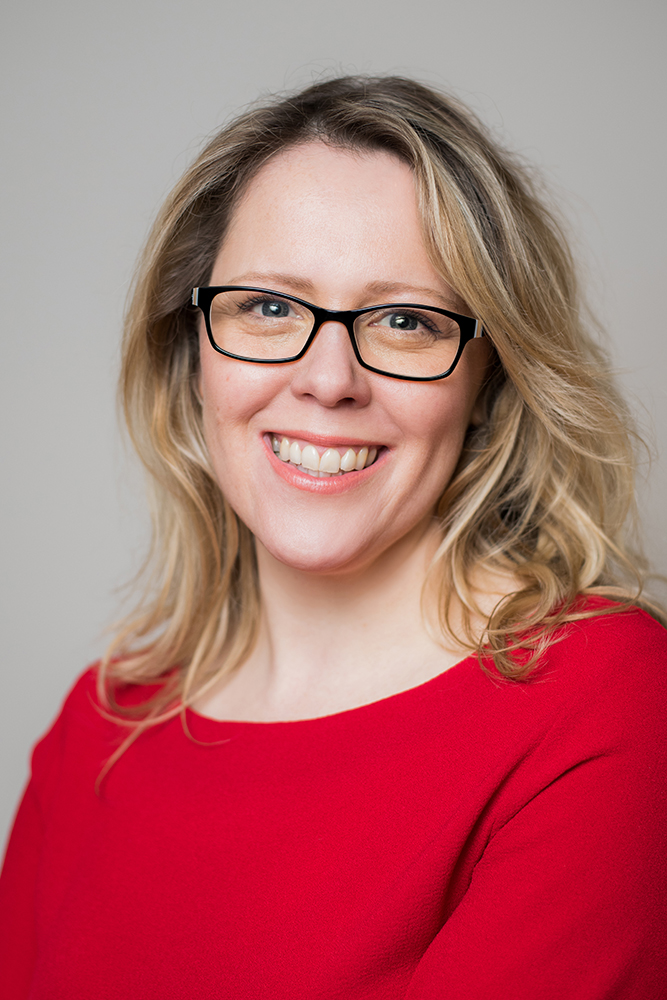
Why did you choose your course?
I chose to undertake the MSc Allergy because I didn’t have the knowledge or experience to treat the patients with allergic disease presenting to my surgery on a daily basis. I recognised Imperial is a world renowned centre in both clinical and academic allergy medicine. I felt this course would give me the clinical and research skills I required in order to provide the highest standard of care to my patients and it exceeded my expectations.
What have you been doing since completing your MSc?
The MSc qualification afforded me the opportunity to establish a primary care allergy practice, to which other GP colleagues refer. It enabled me to develop relationships with international allergy colleagues and to be appointed to the European Academy of Allergy and Clinical Immunology (EAACI) working group for primary care. My MSc research study was published in an American allergy journal and I am about to embark on a MD to further develop my research study.
What’s been your favourite part of the course?
I really enjoyed acquiring both research and clinical skills. The opportunity to attend outpatient allergy clinics facilitated clinical application of the knowledge learnt in lectures. I also discovered a hidden passion for research by undertaking a research study in my final year.
What has been the most challenging part so far?
I think it is daunting for any working professional to return to study but I found the department extremely supportive of this and the facility to review recorded lectures allows you to study at your own pace.
Is there anything you would recommend to students about to start the course?
Don’t be afraid to ask for help at any stage throughout the course. The lecturers and course facilitators are extremely helpful and supportive and recognise the unique challenges facing postgraduate students.
How would you sum up your time on the course in one word?
Career-defining.
Costas Kotsapas - MSc Allergy

Why did you choose your course?
I initially attended the Allergic Airway Disease and Asthma, and Rhinitis and Hayfever short courses. I enjoyed them so much that I decided to then enrol for the MSc.
Did you have any issues sourcing funding for your MSc?
I paid for my tuition fees myself.
What’s the best thing about studying in London?
I have lived in London for a long time now. It offers amazing opportunities for attending academic meetings and courses, and also has so much to offer in terms of going out and socialising.
What’s been your favourite part of the course?
I have enjoyed each part of the course for different reasons. The first year was so important to provide an overall understanding but then I found the second year more interesting as it went into each allergic condition in more depth. Working on the dissertation in my third year has made me push my boundaries and do more independent learning. I feel it has helped me develop more and understand important aspects relating to academia versus clinical work and how they both interlink.
What are you planning to do next?
I have not decided but on completing the MSc I would seriously consider whether I would like to pursue a Doctor of Medicine (MD) or a PhD.
Is there anything you would recommend to students about to start the course?
This is a very exciting course. It has made me fall in love with the world of allergy and has helped to shape my decision in pursuing a career in paediatric allergy that I might not have otherwise!
How would you sum up your time on the course?
Money well-spent!
Sarah Burrell - MSc Allergy

Why did you choose your course?
I wanted to understand the theory behind my clinical work and develop the research skills necessary to help improve the clinical service and treatments currently provided to patients. Allergy is fascinating as there is so much that we still do not understand.
Did you have any issues sourcing funding for your MSc?
I was fortunate to be awarded a full Dean’s Master's Scholarship. Without this funding it would have been difficult for me to have undertaken the MSc.
What’s the best thing about studying in London?
The diversity of the students and lecturers, and becoming part of a community of allergy specialists who are at the cutting edge of research.
What’s been your favourite part of the course?
Interacting with a diverse, motivated and talented group and being taught by some of the world leaders in the field of allergy.
What has been the most challenging part so far?
Statistical analysis and coherence.
What have you been doing since completing your MSc?
I have been working in Singapore on qualitative studies and understanding qualitative data analysis. Moving forward I hope to work with people who have experienced severe anaphylaxis and to understand the impact on their quality of life.
Is there anything you would recommend to students about to start the course?
It is a great experience with the right balance between clinical, theory and research. Sometimes the combination of juggling work, personal life and study commitments can be challenging but it is well worthwhile. For those unfamiliar with research, the process to apply and be granted ethics approval can be a daunting task. I would suggest starting early and find someone who can guide you through the process.
How would you sum up your time on the course in one word?
Invigorating!
Sophia Kallis - MSc Allergy
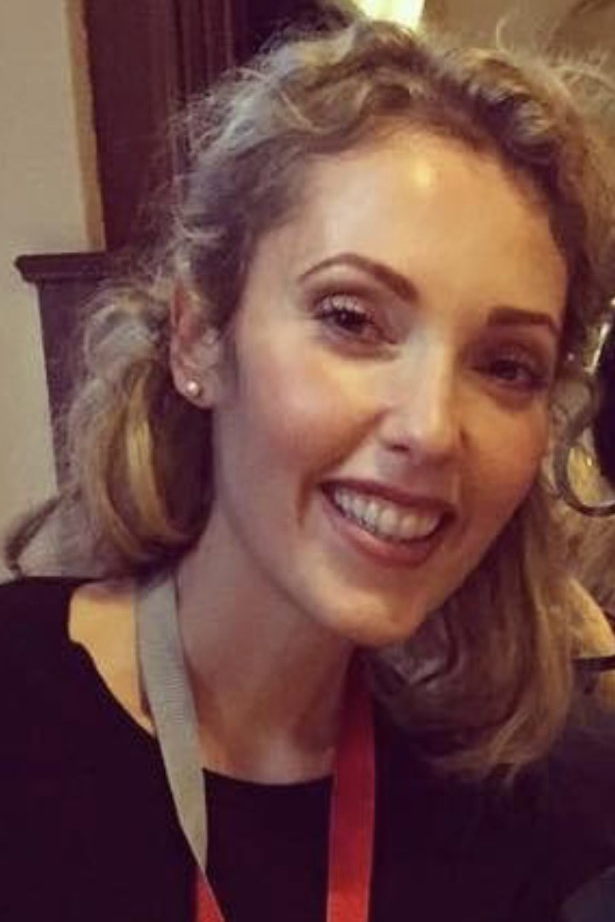
Why did you choose your course?
I chose this course as, at that time, I had been working as a paediatric allergy dietitian for two years and wanted to consolidate my learning further. I wanted to develop my allergy knowledge from all perspectives to help me provide more holistic care to my patients and understand their other treatments, e.g. for their eczema or asthma.
Did you have any issues sourcing funding for your MSc?
I was fortunate enough to receive funding from my hospital department, as they understood that my learning would be directly applied to my clinical service. I have also received some funding from company reps for individual modules.
What’s the best thing about studying in London?
London is such a vibrant and fast-paced city and very multicultural. It attracts students from all over the world and it's been a real pleasure to meet students from varied backgrounds on this course. That in itself is a learning experience and it's great to find out more about how people work in other countries.
What’s been your favourite part of the course?
I've really enjoyed the wonderful lecturers we have had on the course. They are all experts in their field and so it is a real privilege to have them come in and teach us.
What has been the most challenging part so far?
It has been challenging balancing my job with studies but overall, with the support of the course leaders, it has been manageable.
What are you planning to do next?
When I have completed my MSc in Allergy, I plan to use that knowledge in my day-to-day practice. No further plans for studies in the near future, I think I will treat myself to a little break!
Is there anything you would recommend to students about to start the course?
Enjoy the lectures and focus on the speakers. All lectures are recorded, so I found it better to focus on the speakers and then make notes from listening to the recorded lectures. Also, try to be organised with coursework and set aside time weekly to work on it and then you can easily work through it all in time.
How would you sum up your time on the course in one word?
Rewarding.
Sulaiman Alsaif
Why did you choose your course?
I have always wanted to pursue my postgraduate studies at a top university that will provide me with the opportunities, knowledge, and support as I improve my clinical and research skills and work towards becoming a better healthcare practitioner. I chose this MSc because of its unique program that is led by multidisciplinary lecturers who enthusiastically share their knowledge and expertise with their students. The MSc curriculum covers a wide variety of cardiovascular and respiratory specialities with respect to patient-centred care as well as healthcare at a population level.
Did you have any issues sourcing funding for your MSc?
Right after the completion of my undergraduate degree, I applied for a scholarship to continue my postgraduate studies. I then received a full scholarship from the Saudi Arabian Ministry of Education (Elite Scholarship Program). I am so grateful for this amazing opportunity.
What’s been your favourite part of the course?
The access to endless opportunities! I think one of the perks of being an Imperial student is the access to various academic, professional, and fun opportunities both within and outside the college.
What has been the most challenging part so far?
Time management for sure! At a postgraduate level you are expected to do a lot of learning in such a short period of time which can be quite challenging.
What are you planning to do next?
Taking advantage of the extra opportunities, and the networking gained through my MSc served as great preparation for the next step in my academic journey, a PhD. And yes, I will be staying at Imperial for the next few years, exciting times!
Rayan Alkhelaifi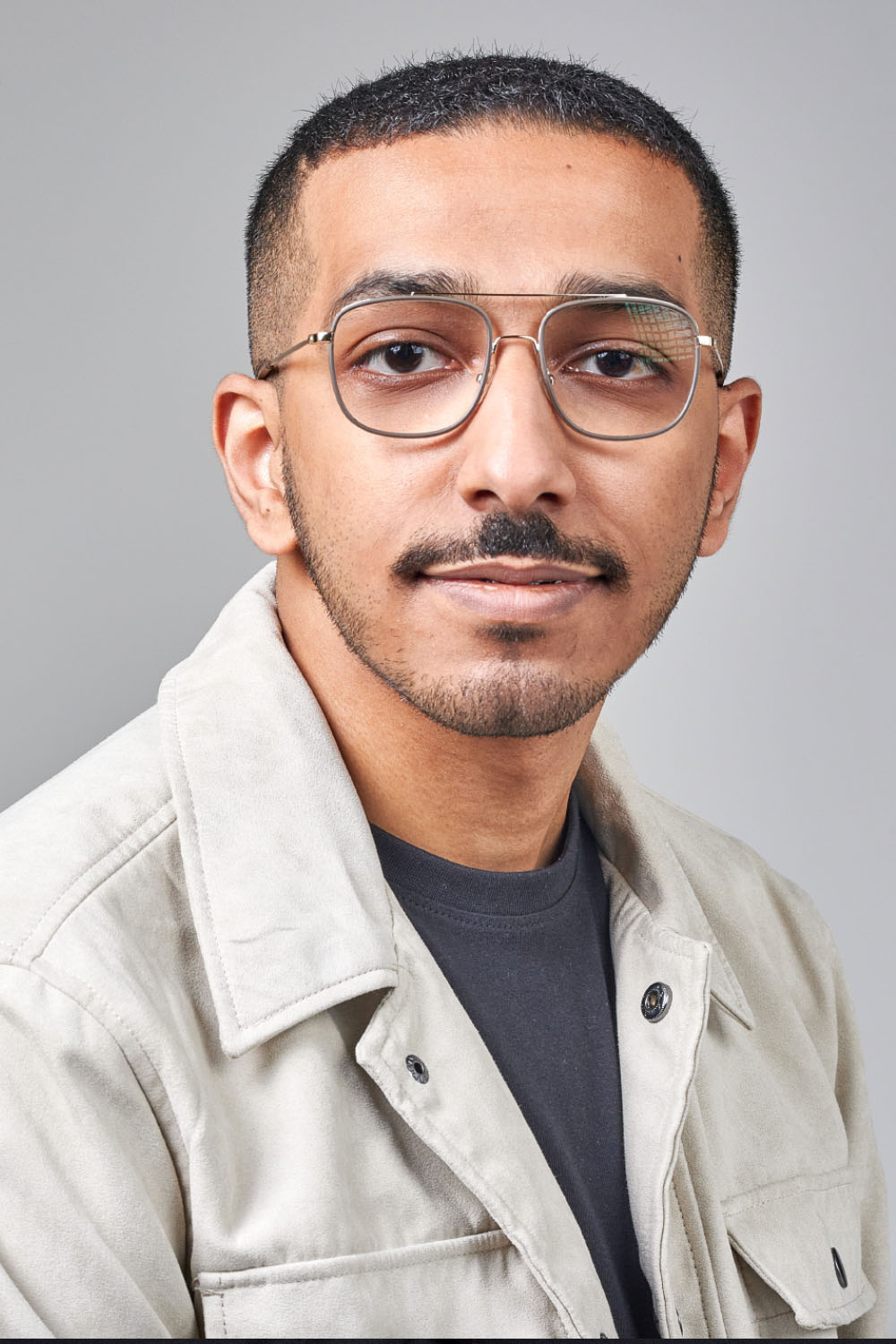
Why did you choose your course?
As a paramedic, I have always been interested in both respiratory and cardiovascular healthcare fields. This MSc combines both specialties with a focus on both the clinical and research aspects.
How have you found the programme so far?
The programme has been very beneficial for me so far. The transition to a graduate level is not easy. However, with all the support provided by the staff and the College I find myself learning a lot every day.
Where do you see yourself in five years’ time?
Hopefully I will have finished my PhD and will be involved in education and training in the Emergency Medical Services field.
Alexis Perkins
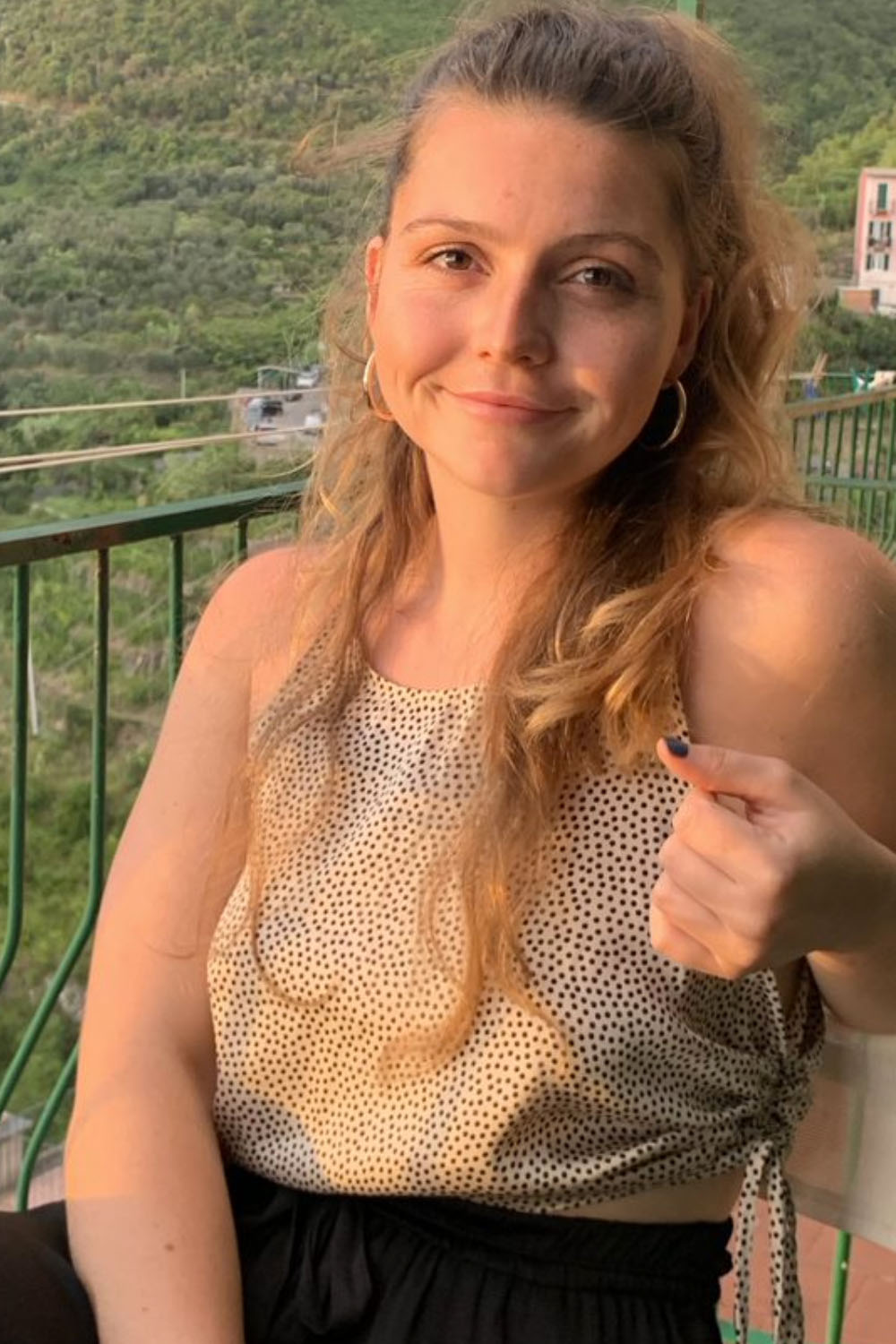
Why did you choose your course?
I wanted to broaden my knowledge of the heart and lungs with a focus on improving patient care and the healthcare system. Being one of the leading medical and science universities in the world with multidisciplinary expert teaching, Imperial was my first choice.
How have you found the programme so far?
I really enjoyed the first term, we were given the opportunity to focus on a variety of detailed physiology topics involving the heart and lungs.
Where do you see yourself in five years’ time?
In any position where I can be making improvements to patient diagnosis, treatment and care. I am not sure whether that will come from a clinical or research position, hopefully a bit of both!
Priya Reehal
Why did you choose your course?
As a registered nurse, currently specialising in cardiology I chose the course to help career progression and for my passion of cardiology. I also really enjoy learning new things and taking on challenges.
What has been the highlight of studying at NHLI for you so far?
I have really enjoyed meeting new people and being taught by such amazing lecturers and professors. The support has been incredible so far.
What has been the most challenging part so far?
Being part-time, time management has been difficult and balancing working full-time and study but it is definitely not impossible!
Did you have any issues sourcing funding for your MSc?
I did not experience any issues with funding, I applied for student finance and I pay the fees termly.
What’s the best thing about studying in London?
The best thing about studying in London has to be the social aspect, the shopping, bars and clubs. There is so much to do with friends and family in between studying. It is sometimes difficult to juggle everything but if you really want something and you put your mind to it, you can do it!
What do you hope to go onto after completing your MSc?
I hope to become a clinical nurse specialist or to further study at Imperial.
CRH alumni reflect on studying the course

Hannah on studying for a PGcert
Following completion of the course, Hannah now works as a clinic specialist nurse in heart failure.
Following completion of the PGCert, Hannah now works as a clinic specialist nurse in heart failure.

Ebru on studying for a MSc
Following the MSc, Ebru gained a place to study medicine.
Following the MSc, Ebru gained a place to study medicine.

Suleiman on studying for a MSc
Following completion of the course, Suleiman is now undertaking a PhD at Imperial.
Suleiman is now studying for a PhD at Imperial.

Alexis on studying for a MSc
Following completion of the course, Alexis is now working as a research physiologist.
Following completion of the course, Alexis is working as a research physiologist.
Genes Drugs and Stem Cells - Novel Therapies
Meet some of our Genes Drugs and Stem Cells MSc students and read about their experiences at NHLI
Zuzanna Jablonska, Dean's Master's Scholarship winner
What did you most enjoy about your course? 
I definitely enjoyed the diverse lectures delivered by experts in their field and the company of fellow students in the first part of the course. In the second half of the year, I was able to join Dr Dominique Bonnet’s group at The Francis Crick Institute to carry out my research project which was undoubtedly an amazing and intellectually stimulating opportunity.
What did you most appreciate about the College?
I really appreciate the openness of academics and their approach to teaching, the wide access to various resources, the libraries, and the whole Imperial community.
How did it feel to receive the Dean's Master’s Scholarship?
The moment I got the letter saying that I had received the Dean’s Master’s Scholarship was one of last year’s biggest highlights for me. I am extremely proud and honoured that my dedication has been acknowledged and rewarded, and it has motivated me even more to continue working hard.
What are you doing now and what do you plan on doing after graduation?
I am currently in the middle of my six-month research project at The Francis Crick Institute. My plans after graduation are highly focused on pursuing a career in academia. I can happily say that I have accepted an offer to continue my academic journey at Imperial and I’m really excited to start my PhD research project under the supervision of Dr Michela Noseda and Professor Ed Tate in October.
Find out more or apply for Genes, Drugs and Stem Cells - Novel Therapies postgraduate courses
Abhiram Chakka - MSc Genes, Drugs and Stem Cells
Why did you choose at Imperial? 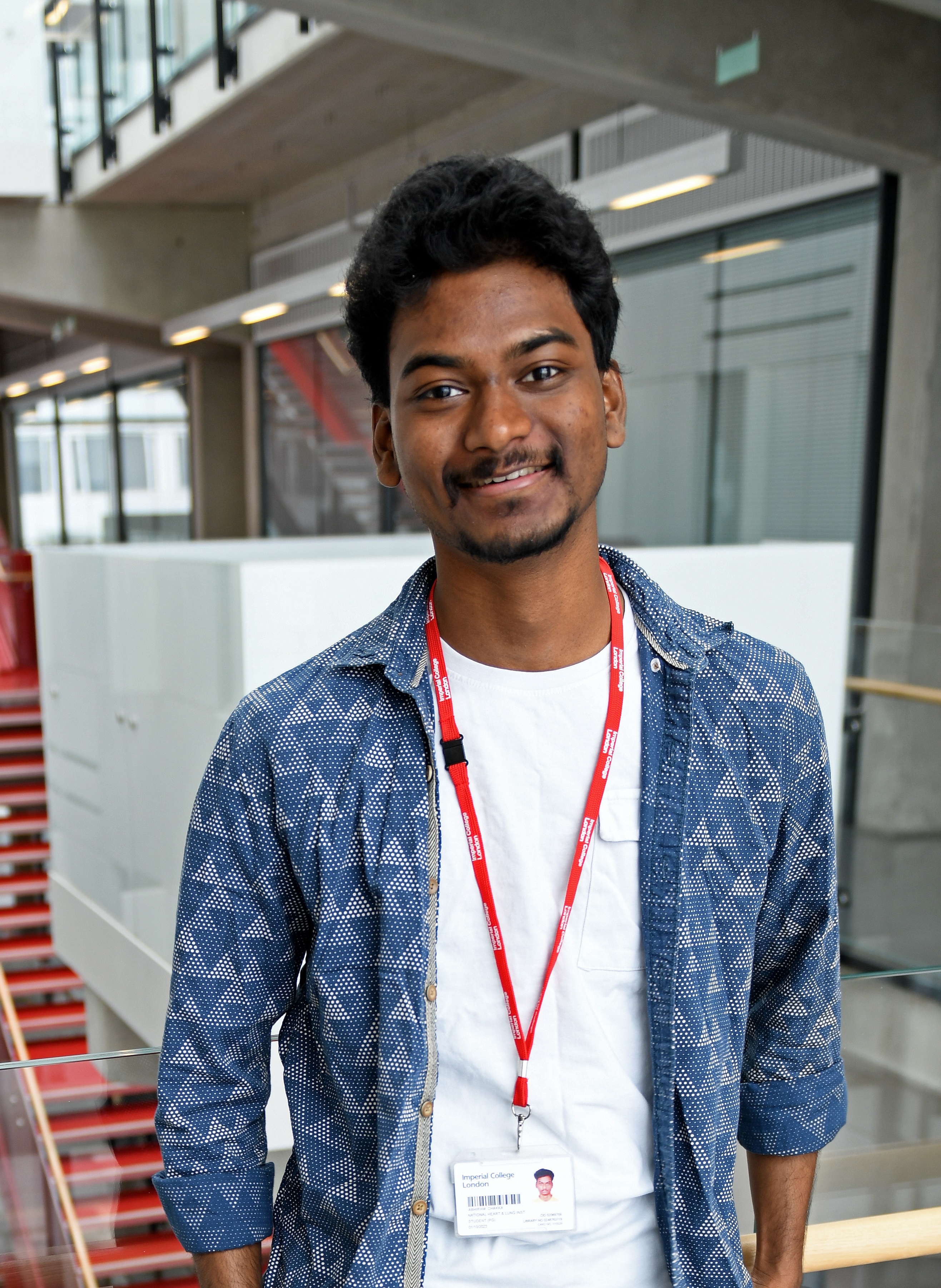
I was really interested in stem cells, so I searched stem cell courses online and Imperial came up as a high-ranking university. My thinking was that if you go to a good-rank university, you get good people and friends out of it. And I believe that it is the people around you who push you forward and would push me out of my comfort zone. That's why I'm here.
What was a highlight of the course?
My favourite part was working in the labs, as you have more freedom.
What was your favourite thing about Imperial?
As you have different campuses, it inevitably means that you get to go across London, and see different areas of London, which is a good thing.
What are you planning to do after finishing your course?
At the beginning of this course, I didn't want to do a PhD. But now that I've started working in a very good lab it has inspired me to do a PhD potentially. And also, along with that, I'm even interested in healthcare consultancy. So anything related with healthcare or life sciences consultancy.
Emmanuel Okwelogu

Why did you choose your course?
The prospect of studying novel advancements in medical therapeutics at a first-class institute was the main reason why I chose the course.
What’s been your favourite part of the course?
The favourite part was the public engagement where I experienced engaging an audience of various backgrounds with what we do in gene therapy at a carnival.
What has been the most challenging part so far?
The most challenging part was undeniably the six-month-long research project which in the end turned out fabulous.
Did you have any issues sourcing funding for your MSc?
Yes, I had issues sourcing funds due to my financial status, but I was able to secure a loan from Student Finance England as a Home/UK student.
What’s the best thing about studying in London?
The multicultural diversity in London is very remarkable. Also, Kensington is at the heart of wonderful monuments and exciting exhibitions, for example the Natural History Museum and The Royal Albert Hall.
What are you planning to do next?
I'm off to Manchester to start a PhD at the University of Manchester, studying graphene nanomedicine in cancer diagnostics and therapy.
Angela Giarrizzo

Why did you choose your course?
During my neuroscience degree, I developed a passion for the exciting field of brain and spinal cord regeneration. For this reason, as a continuation of my studies, I chose the postgraduate programme in Genes, Drugs and Stem Cells at the NHLI. Of all the options, I chose this particular programme not only because it allows me to learn about both the scientific and the commercial aspects of stem cells and regenerative therapies, but also because it allows me to broaden my knowledge by learning about current developments in pharmacology and gene therapy.
How have you found the programme so far?
I am so enjoying this programme! Lectures are delivered by world-leading experts whose passion for what they do is tangible and transmissible. I also appreciate the assessments as they truly prepare you for what comes after your studies.
Where do you see yourself in five years’ time?
I see myself researching possible ways to promote neural regeneration and travelling the world in my free time.
Charlotte Hutchings

Why did you choose your course?
When I completed my BSc in Biological Sciences, I was a little stuck on where to go next because my interests are relatively broad. I love genetics and cell biology but ultimately want to go into cancer research and therapeutics. Finding the MSc Genes, Drugs and Stem Cells was a blessing because it really allows me to combine all three of these. The course is unique in that you have the opportunity to study three completely different fields, all whilst gaining relevant skills. You can follow the path that most suits your future plans.
How have you found the programme so far?
I've loved the course so far, and I honestly mean that. We are being introduced to current, innovative topics in the field and most of the lecturers are really engaging. I also really appreciate the assessments because they're 'authentic' and you can really feel yourself learning skills that can be applied in real life scenarios.
Where do you see yourself in five years’ time?
Well, I have just sent off some PhD applications to the US, where PhD programmes are on average five to seven years. So maybe I will have just completed my PhD? I guess time will tell. All I hope is that I'm happy and doing well, personally and professionally.
Sara Reci
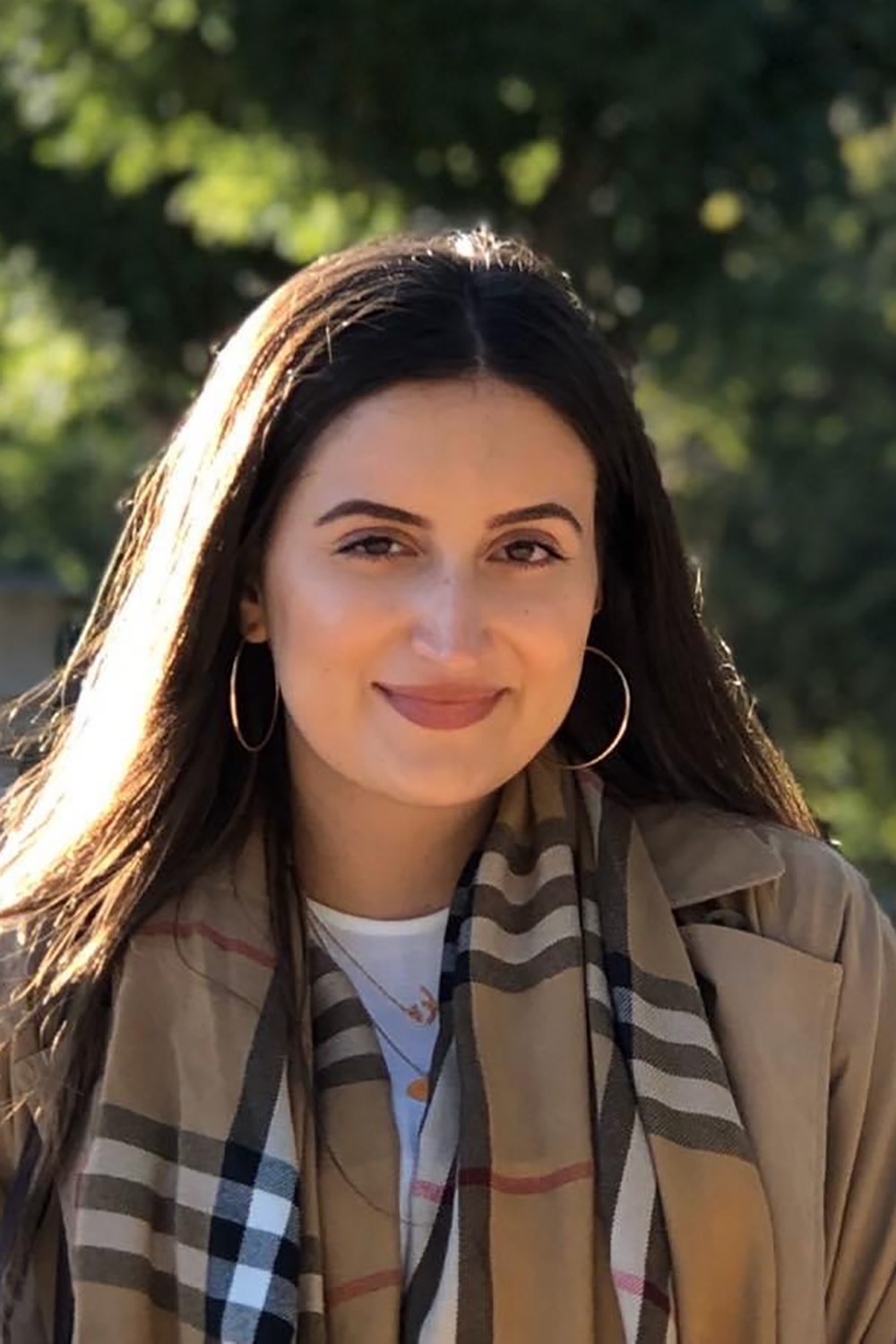
Why did you choose your course?
I chose this programme as it provides a unique blend of key subjects within the medical field of genes, drugs and stem cells. I particularly enjoy learning about stem cells, so I knew that this would be the Master’s programme for me, especially in the advanced modules, for which I have picked the Regenerative Medicine stream. Additionally, I am interested in the application of stem cells in the heart, so was further drawn towards this course as it is based at the NHLI.
How have you found the programme so far?
The programme has so far been fun – whilst challenging, it is equally as rewarding, if not more! It is an amazing experience to be taught by such respectable scientists within the field, and to learn about the latest novel therapies from people who are producing ground-breaking research themselves.
Where do you see yourself in five years’ time?
In five years’ time, I hope to be completing a PhD in stem cells.
GDS students tell us what they think of the course

Yaqi (Betty) Hu
Betty gives her view on the MSc course as an international student.
Yaqi 'Betty" Hu is an international student on the MSc in Genes, Drugs and Stem Cells with NHLI. Betty gives her opinion on how she has found the course, and her time at NHLI.

Qasim Majid
Qasim gives his views on the course so far.
Qasim Majid is a student on the MSc in Genes, Drugs and Stem Cells with NHLI. Qasim gives his opinion on how he has found the course so far.

Rebecca Callingham
Rebecca Callingham is a mature student on the MSc in Genes, Drugs and Stem Cells with NHLI.
Rebecca Callingham is a mature student on the MSc in Genes, Drugs and Stem Cells with NHLI. Rebecca gives her opinion on how she has found the course, and her time at NHLI.
John Bozeman
What were you doing before you came to Imperial?.jpg)
I graduated from my undergrad in 2019 from Montana State University. I did two degrees there. Cell biology and neuroscience, and microbiology, two different ones with a minor in genetics. After that, I felt I needed to continue my education, and Imperial just seemed like the perfect place.
Why did you want to do a postgraduate course?
The thing about post-grad is you get to expand your critical thinking and you get to explore new areas that you might not have in your undergrad. The education system is a bit different here versus in America. But I felt like here is a bit more hands-on. Obviously, we have the research project, so we get to actually do some real science work with some top people who have been in the field a long time. So I was really looking for that hands-on applied experience, which now I have.
Why did you choose the MSc in Genomic Medicine?
It's interesting. I was really interested in cancer biology and then I looked into genomic medicine and how the sequencing is becoming so powerful now that you can really look at tissues from cancer to just really anything. Bacteria, fungi, parasites, viruses, all of these things, it comes down to the DNA and the RNA. I thought about medical school, so that was like the next logical step to go into something genomic and then apply it to the clinical side of things. Combining all those things, it just fit perfect in genomic medicine.
How have you found studying and living in London?
I think this has been probably the best experience I've had. London is an amazing place. Everywhere you go, something's happening.
Just walking down the street, I'll get swept away into doing one thing or another. It's so much fun. Also, the South Kensington campus is a great location. I've been to all the other or most of the other campuses and Imperial has a really nice setup with different locations. So, yeah, I really like it.
What advice would you give to someone either starting the course or considering applying to it?
I think you'd be surprised how applicable what you learn here is because we have people from many different backgrounds. We had clinicians, business-minded people, and even a math and physics major. So it's really something. These knowledge skills, I think, will apply to almost any profession. Another thing is that it's definitely worthwhile and that you feel like this is meaningful.
Natalie Bowen
What were you doing before you came to Imperial?
Many things! I have been trying to get enough care experience to go into genetic counselling. In the four years since my undergrad, I've had various roles. I've been a carer, and I've been a learning support system for special educational needs children. Then, I went and did PCR testing for a bit to try to get back into science and worked as a personal health planner. I wanted to further my education and get more background knowledge under my belt because my undergraduate degree wasn't specifically in genetics, since I was looking to join the Science Training Programme yet.
What was your favourite part of the programme?
Genomics and the Patient was one of my favourite modules. I really enjoyed learning about patient’s perspectives, and there were some really moving lectures that were very emotional. You would never get to experience that elsewhere.
What advice would you give to someone either starting the course or considering applying?
I would say it's a really good course to gain a broad understanding of genetics. You go into a lot of depth whilst also covering a lot of topics, so it's great if you're looking for something that is going to give you stepping-stone knowledge.
Caroline McKittrick
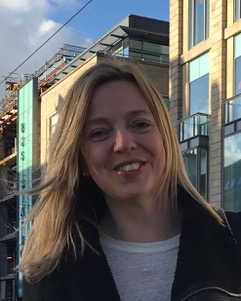
Why did you choose your course?
I was seeking a route into academic medicine after GP training and was interested in genetics. The MSc in Genomic Medicine provided exactly the kind of applicable knowledge and skills I was looking for in a discipline at the forefront of translational research. I was also able to complete the programme part-time over two years to fit around a busy family life.
How have you found the programme so far?
The taught modules were diverse, interesting and challenging with a good balance of lectures, group work and independent preparation for written assessments. Imperial offers a wide range of options for the research project but was also flexible in accommodating an external project, allowing me to pursue a special interest in mitochondrial disease.
Where do you see yourself in five years' time?
Following on from my MSc research project I will be starting a PhD at University College London later this year. Again I’m studying part-time so in five years’ time I'll hopefully be finishing my thesis and about to embark on the next stage of my academic career.
Alexander Schwinges

Why did you choose your course?
I was searching for a short and demanding programme linking human genetics and medicine. Originally, I was looking at UK universities simply because masters are only one year here, not knowing how much the whole field is promoted at the moment. That was a welcome surprise.
What has been the highlight of studying at NHLI for you so far?
Learning about the massive scope of the 100,000 Genomes Project in one of the early lectures by Professor Mark Caulfield, Chief Scientist for Genomics England, was definitely my highlight.
What’s the best thing about studying in London?
London is a great city with many things to do. I love to explore the city, and if I only want to relax I have plenty of friends at the student accommodation I am living at.
What’s been your favourite part of the course?
I really enjoyed working on my MSc thesis. I used a statistical approach called Mendelian Randomisation on UK Biobank data to explore the link between educational attainment and cancer risk.
What has been the most challenging part so far?
Working alone on your assignments (only essay-type assignments) made me feel like I was writing a thesis all-year round. I think it depends very much on the preferences of the person how this is perceived. Some really enjoyed it, for me it was challenging.
How would you sum up your time on the course in one word?
Broad.
Sunayna and Affy
We asked our graduating students some questions about their time studying the Master's in Genomic Medicine.
Dr Sunayna Best
Dr Sunayna Best - Genomic Medicine

Why did you choose the MSc in Genomic Medicine?
Dr Sunayna Best talks about why she chose the masters in Genomic Medicine with NHLI

What did you enjoy about the MSc in Genomic Medicine?
Dr Sunayna Best talks about what aspects of the masters in Genomic Medicine she enjoyed

Would you recommend the programme?
Dr Sunayna Best talks about why she would recommend the masters in Genomic Medicine with NHLI

What will you do next?
Dr Sunayna Best talks about what she will be doing next after the masters in Genomic Medicine
Dr Affy Sepahzad
Dr Affy Sepahzad - Genomic Medicine

Why did you choose the MSc in Genomic Medicine?
Dr Affy Sepahzad talks about why she chose the masters in Genomic Medicine with NHLI

What did you enjoy about your MSc in Genomic Medicine?
Dr Affy Sepahzad Best talks about what aspects of the masters in Genomic Medicine she enjoyed

Would you recommend the programme?
Dr Affy Sepahzad talks about why she would recommend the masters in Genomic Medicine with NHLI

What will you do next?
Dr Affy Sepahzad talks about what she will be doing next after the masters in Genomic Medicine
Melika Bankipoufard
What were you doing before you came to Imperial?
We moved to Dubai from Iran when I was 10 years old and I stayed in UAE to study medical diagnostic imaging, at university in Sharjah, which is another city close to Dubai. The programme helped me to build my career and to see what my strengths are in the medical field. Since I was 17, I knew I wanted to specialise in ultrasound.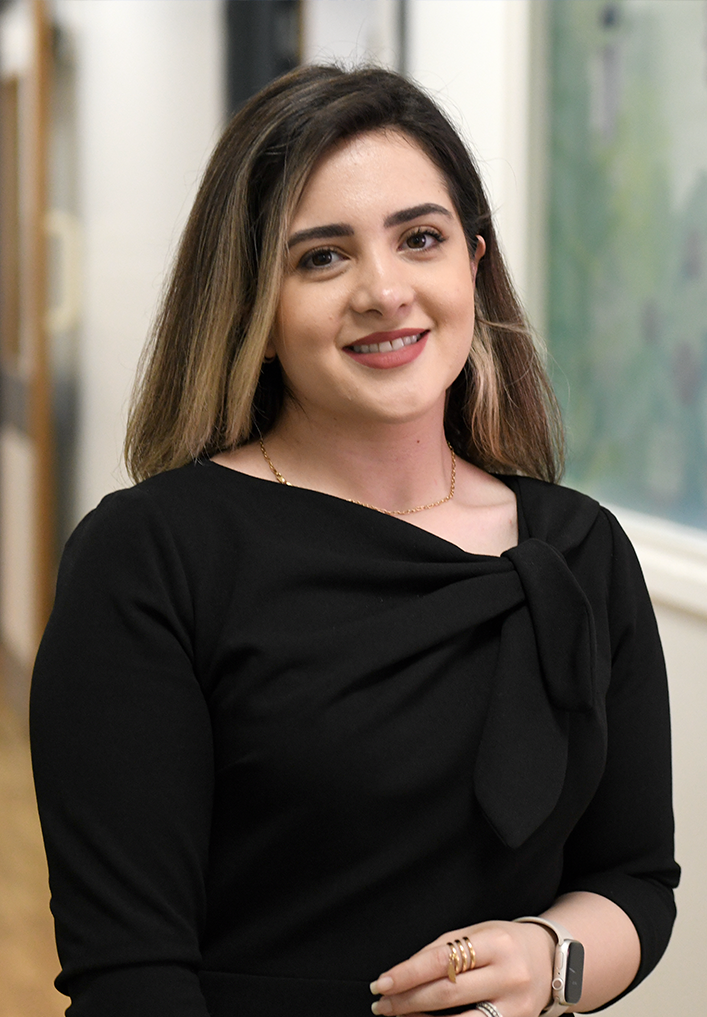
What was your favourite part of the programme?
The highlight of the programme was the clinical placements, particularly in vascular sciences. Imperial provides the clinical placement so there was no stress in finding them yourself which you have to do on some other programmes. All the people helping to train us shared their experiences in anatomy and technique.
What advice would you give to someone either starting the course or considering applying?
My advice for people who are considering the course is that they should have the passion to work with patients closely because compared to other imaging modalities, ultrasound is more operator dependent. You need to have really good communication skills with the patient. If you're passionate about it and passionate about the vascular speciality itself or another speciality within the ultrasound setting, you will definitely enjoy it.
Abdullah Alharbi

Why did you choose your course?
I chose this programme in Echocardiography after working in a cardiac centre for eight months. I started looking into so many different programmes at universities around the world including Australia, Canada, USA and the UK. After reading more and more about these programmes, I found the Master’s at the NHLI more interesting and it contained further study and practice in echocardiography compared to other programmes.
How have you found the programme so far?
The programme is interesting, intensive and full of learning. The teaching staff are so cooperative with the students regarding the current pandemic.
Where do you see yourself in five years’ time?
Hopefully I will have finished my PhD.
Davina Sadyakeethy

Why did you choose your course?
I chose this course as I believe it will equip me to progress in my career. Working as a cardiac physiologist, my BSc trained me within all cardiac investigations except echocardiography. I knew I had to train in a hospital in order to progress and learn ultrasound. When I found this course online, I instantly knew it fulfilled what I needed. Not only will it help me learn ultrasound practically, it will also help me to broaden my research skills.
What has been the highlight of studying at NHLI for you so far?
For me the highlight has definitely been meeting fellow students, professors and learning about upcoming research.
What has been the most challenging part so far?
The time management of revision and social life.
Did you have any issues sourcing funding for your MSc?
I applied for a postgraduate student loan. This covers my tuition fees and as I worked previously, I had some of my own savings for living costs.
What’s the best thing about studying in London?
The environment is amazing. There is so much to do, places to eat and meeting different people.
What are you planning to do next?
I will be staying in London and have been offered a job for a private healthcare clinic where I will be utilising the skills that I learnt during my masters.
